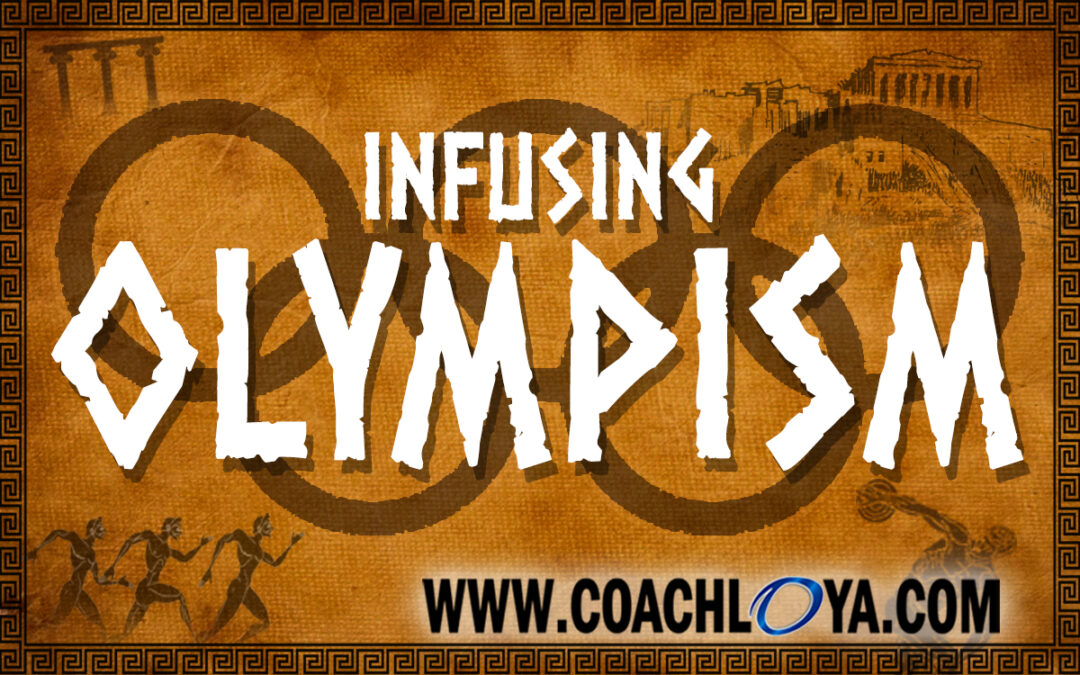The games of the XXXIII Olympiad are nearing their end. More than 11,000 athletes from over 200 countries made their way to Paris to compete in the world’s preeminent sporting event.
I enjoy following the Olympics. Like many of you, I find myself engrossed in sports that I don’t normally watch on TV, like badminton, gymnastics, and diving. I also find myself cheering for underdog athletes from countries I’ve never visited nor have any connection whatsoever.
And that, in many ways, highlights the beauty of the Olympics.
When Pierre de Coubertin, the father of the modern Olympics and creator of the five interlaced rings logo, proposed resurrecting the ancient Greek tradition in 1894, his intention was to unite the world in “friendship and peace through sport” in a “celebration of humanity.”
While touting the event’s return, Coubertin famously coined the term Olympism—a term with tremendous relevance to the art of being a good teammate.
“Olympism is a philosophy of life, exalting and combining in a balanced whole the qualities of body, will and mind. Blending sport with culture and education, Olympism seeks to create a way of life based on the joy of effort, the educational value of good example, social responsibility and respect for universal fundamental ethical principles.” (Source: The Olympic Charter)
Good teammates embody the spirit of Olympism. It’s seen in how they respect others, the way they practice Mudita, the depth of their commitment, and their insistence on pursuing victory with honor.
The most successful teams infuse the concept of Olympism into their cultures. They celebrate its presence and those who embrace it, which, ironically, becomes the impetus to their teams’ success.
Olympism manifests itself through the inherent self-sacrifice accompanying good teammate moves (i.e., selfless acts committed for the sole purpose of helping the team move forward).
The Olympics have played home to numerous good teammate moves over the years. Here are five of my favorites:
Ashley Moloney and Cedric Dubler (Tokyo 2021)
Cedrick Dubler sacrificed a higher ranking when he dropped back to pace and encourage exhausted teammate Ashlely Moloney. Dubler’s selflessness helped Moloney become the first Australian to medal in the decathlon.
Nikki Hamblin and Abbey D’Agostino (Rio 2016)
New Zealand’s Nikki Hamblin and American Abbey D’Agostino collided four laps from the finish of the 5000m. Hamblin stopped, encouraged, and helped D’Agostino finish the race, despite, as it was later revealed, D’Agostino having torn her ACL in the collision.
Kerri Strug and the Magnificent Seven (Atlanta 1996)
American gymnast Kerri Strug injured her ankle during her first vault attempt. She could have understandably withdrawn from the competition at that point, but doing so would have cost her team, aptly dubbed the “Magnificent Seven,” a gold medal. Despite excruciating pain, Strug attempted her second vault, landed on one leg, and secured her team’s spot on the podium.
Derek and Jim Redmond (Barcelona 1992)
British sprinter Derek Redmond’s hamstring tore during the 400m semi-final. As he desperately hobbled towards the finish line, his father, Jim—in an incredible display of parental support—jumped from the stands, barged past security, and helped his son complete the race.
Lawrence Lemieux and Joseph Chan and Siew Shaw Her (Seoul 1988)
Canadian sailor Lawrence Lemieux was halfway through the Finn Sailing final and on his way to earning a medal when he spotted a capsized Singaporean boat. Lemieux abandoned his race and rushed to Joseph Chan and Siew Shaw Her’s aid. He saved both from drowning.
As always…Good teammates care. Good teammates share. Good teammates listen. Go be a good teammate.





